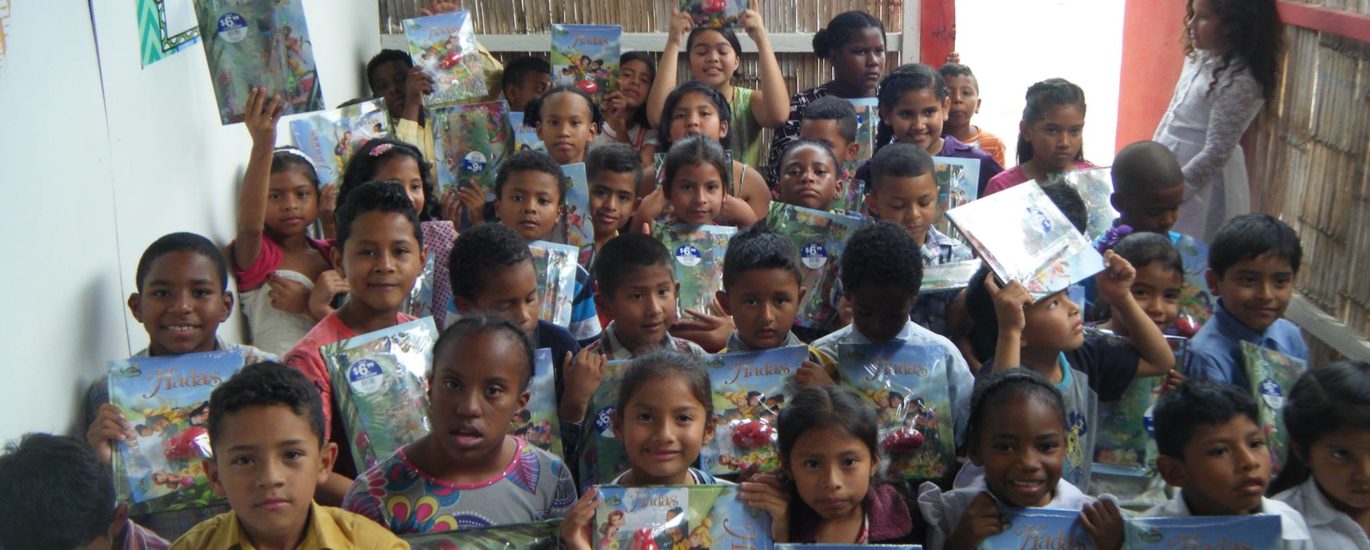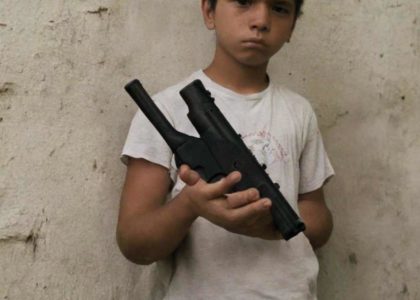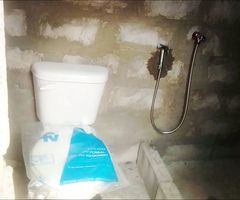Lift the Kids by Lifting the Moms
The Spark that Starts the Support Group
I recall a time when I came across a child of a single mother that had a bad infection; a really bad infection. It had gone much further than one would hope for a 9-year-old.
Bacterial infections here in Ecuador can be quite dangerous and can spread through a frail anemic child very quickly with deadly consequences. It requires rapid and serious attention.
The cemeteries are a sad and sobering testament to the young ages of death here.
A deep ignorance:
We found the mother was treating the young child with an adult dose of Paracetamol (Tylenol equivalent). Also an adult dose of aspirin, along with washing the wound with alcohol and Johnson’s baby lotion. She would dress the wound by putting her dirty clothes back over the open wound on her buttocks. At the same time, the child also had pus oozing from both ears. I suspect she was going septic.
I have never quite seen anything like it.
The lack of understanding about the seriousness of the infection was also very troubling to witness. When I asked if she understood how serious this was and if she was treating the child, she responded yes and showed me the items she was using.
This same child often presented with head lice. Again, the mother was using alcohol and vegetable oil on her hair to eliminate the infestation, yet never changing any of the bedding at home, so it became a revolving door of infestation. Hand washing all the bedding in a small basin with a bar of soap would not likely kill the lice anyway.
I don’t believe these were deliberate acts of neglect. I believe it’s a lack of education, resources, and information to help people deal with life.
Having worked in many different barrios over the past years, there is an understanding that it’s most often a deep ignorance that fuels extreme poverty.
Generational, ongoing, circular, and difficult to break free of.
This woman could not print her own name without looking at her ID.
Tragically, there are other children in similar or even worse situations in far too many homes. This mother having already lost one child, I struggled with the best way to help the situation.
One day while walking the dirt roads of the community with the barrio president, a stark reality appeared. The majority of the children playing in the streets that were frail, anemic, with lice or scabies, in dirty or ill-fitted clothing or shoes, were primarily from the single family homes. More than 30% of households in the community are managed by single moms living in extreme poverty. That means they earn often under $2 per day.
Get a Job?
Simply offering them a job, doesn’t always provide the tools needed to succeed. Many cannot read, don’t have the clothes or means of transportation, no phone nor support to watch their children. They may collect the government subsidy of $50 per month. This does not arrive consistently nor is it sufficient to survive on. Some moms have secondary ways of earning like selling food in the street, recycling or street level prostitution to try and increase their earnings.
In the past we would help by offering crisis management with food or medicine. But we found there was always one crisis after another and it was clear a different approach was needed. We needed to change our focus to identify the unique barriers in each family to help them break free of the cycle of poverty.
We need to lift the kids, by lifting the mothers. To minimize the daily food crisis by helping them to better help themselves. To provide resources with the understanding that rice may be what they need today, but it won’t change their tomorrow.
The old saying; teach a man to fish comes to mind here.
I asked the barrio President:
What can be done, how do we help?
Our First Meeting
By the time our walk through the barrio ended, we had come up with a plan to establish a support group of the single moms. He agreed to build a list of at-risk families and we held our first meeting on May 2, 2021. We now meet bi-weekly on Fridays from 2pm to 4pm. The first meeting was to gather information on what the moms felt they needed help with. We completed some forms to understand what they were up against in their homes.
Some Realities They Shared:
- don’t have work
- Can’t read or write
- don’t have enough beds
- don’t have a fridge
- don’t have a stove
- house is ready to fall down, or roof leaks
- don’t have a bathroom or water
- don’t have electricity hooked up
- can’t feed their children every day
- feel depressed and sad many days
- the dad’s don’t help
Where are the dads?
Out of the 33 moms that showed up on the first day; only 3 fathers offered any kind of help. Of those 3, only one consistently helped, the other two were when they felt like it. As we investigated the process for receiving this assistance, it became clear that the very rules in place actually exclude the very ones that need it the most. What seems like small steps, such as needing to have a bank account, a phone, an email address, were large barriers to moms that cannot read or write and earn only $50 a month. How on earth do they maintain $5 in a bank account when every dime equals a bun to eat?
Part of the support group, provides two lawyers. They utilize law students to help the mom, remove barriers and the lawyers will attend the hearings. They are seeing successes in court to this day! Their time is free, but the copies, transportation and filing fees all cost. This is why we need sponsors; to keep these programs moving forward.
Each family lifted is another step towards a healthier society.
If you would like become involved in the single mom support group there are various ways:
Living locally:
- Give of your time and attend meetings
- Prepare or buy snacks we can share.
- Share this information with your friends and family.
- Fundraise within your circle.
- Donate $ one-time or become a monthly contributor.
Living outside Ecuador:
- Share the information to get the word out.
- Donate $ one-time or monthly to cover the monthly costs.
- Purchase snacks or materials as needed.
- Fundraise in your local circle.
- Connect us to people with the skills and experience that can offer these moms some hope.
For more information; Contact Dodie at: info@ecuadorfromtheheart.com










